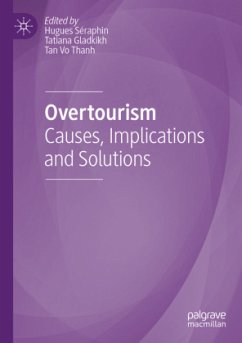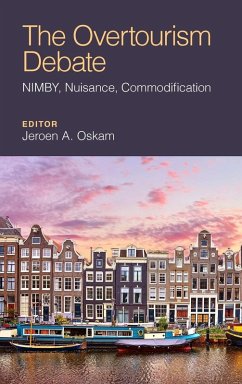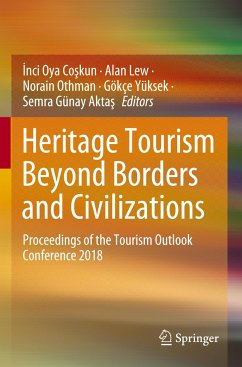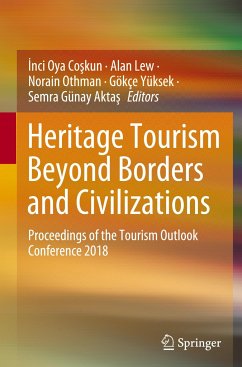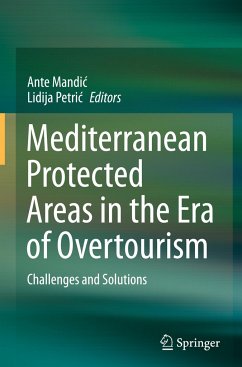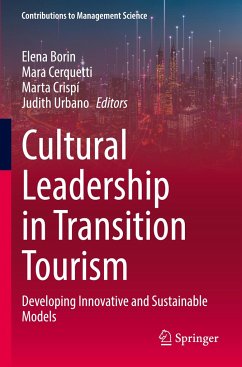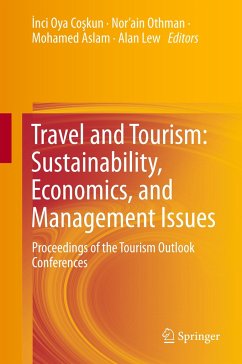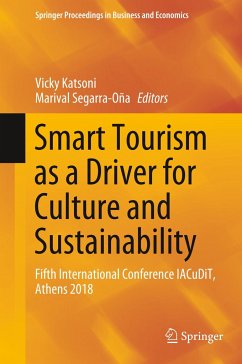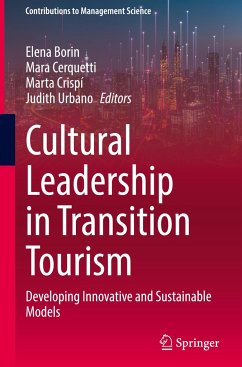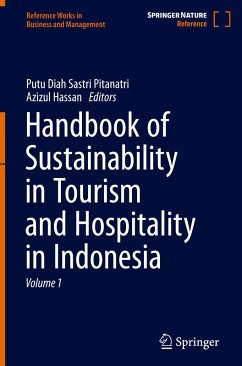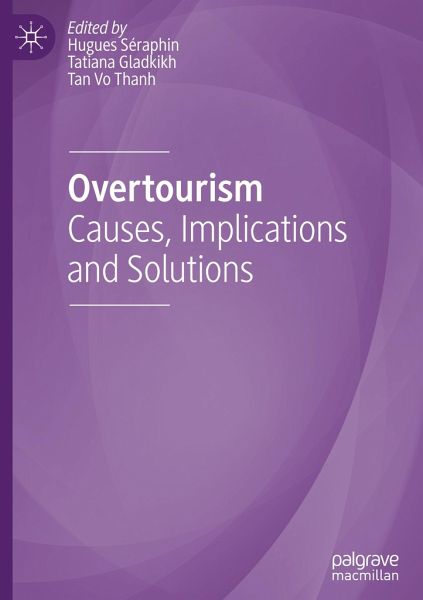
Overtourism
Causes, Implications and Solutions
Herausgegeben: Séraphin, Hugues; Gladkikh, Tatiana; Vo Thanh, Tan

PAYBACK Punkte
68 °P sammeln!
The term 'overtourism' has come into prominence since 2017 and refers to the fact that, due to various factors such as more sophisticated marketing strategies, a large number of tourists visit the same place at the same time. The consequences are felt by the locals, the tourists themselves as well as the environment. As a result, tourismphobia and anti-tourism movements have emerged as ways for locals to reclaim their lifestyle by refusing to interact with visitors and sometimes discouraging them to visit.This book presents new research on this emerging phenomenon and discusses the main causes...
The term 'overtourism' has come into prominence since 2017 and refers to the fact that, due to various factors such as more sophisticated marketing strategies, a large number of tourists visit the same place at the same time. The consequences are felt by the locals, the tourists themselves as well as the environment. As a result, tourismphobia and anti-tourism movements have emerged as ways for locals to reclaim their lifestyle by refusing to interact with visitors and sometimes discouraging them to visit.
This book presents new research on this emerging phenomenon and discusses the main causes and implications before putting forward possible solutions. The authors take an interpretivist approach in order to unveil aspects of overtourism that have not yet been discussed. It provides case studies and explores topics such as tourism education, overtourism of cultural and heritage sites, and the need for sustainable tourism development.
This book presents new research on this emerging phenomenon and discusses the main causes and implications before putting forward possible solutions. The authors take an interpretivist approach in order to unveil aspects of overtourism that have not yet been discussed. It provides case studies and explores topics such as tourism education, overtourism of cultural and heritage sites, and the need for sustainable tourism development.



